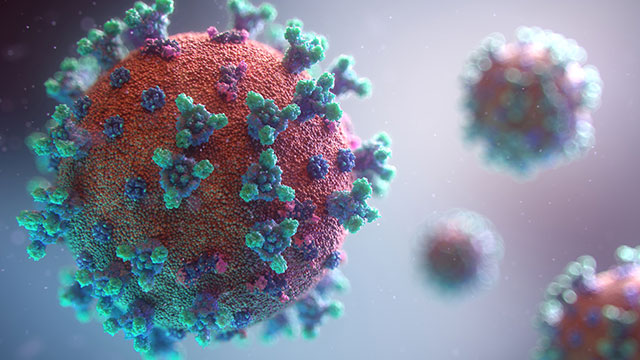April 8, 2020 I Jola Glotzer
What if the anti-COVID-19 meds could be produced 10 times faster than on average?
That is a goal of CBC Awardee Michael Jewett, NU, who plans to employ bacterial extracts in order to scale up the new anti-SARS CoV-2 antibody bioengineering in vitro

Prof. Michael Jewett, NU.
Source: Northwestern Now.
Michael Jewett is Professor of Chemical and Biological Engineering in the NU’s McCormick School of Engineering and director of NU’s Center for Synthetic Biology. He is also a world-known researcher specializing in the field of synthetic biology. Jewett received a 2013 CBC Catalyst Award for the project “Engineering Prokaryotic Translation for Artificial Metalloenzyme Production.” The developed technology relies on bioengineering bacterial strains optimized to synthesize a protein of choice. The protein-producing machinery is subsequently extracted from the bacteria and used to scale up the protein production in a cell-free environment.
The process developed by Jewett and his collaborators gave rise to a spinoff biotech company, SwiftScale Biologics, established in 2019. The company has currently pivoted most of its efforts towards developing an in vitro mass production of anti-SARS CoV-2 antibodies that could potentially become COVID-19 therapeutic(s). If successful in optimizing the system, Jewett predicts that the antibodies could be produced 10 times faster than by any other available means and potentially enter the clinical phase of human testing in a bare few months.
The CBC is proud to have supported Jewett’s early research and is keeping fingers crossed for a speedy progress in his current research that his company is currently engaged in to help combat the COVID-19 pandemic. Congratulations!
April 02, 2020 | Amanda Morris | Northwestern Now
Cell-free biotechnology could help accelerate COVID-19 therapeutics
Platform could produce new antiviral drugs more than 10 times faster

SARS CoV-2. Source: Northwestern Now.
When it comes to fighting a fast-spreading pandemic, speed is critical.
Researchers at Northwestern and Cornell Universities have developed a new platform that could produce new therapies more than 10 times faster than current methods. The secret behind the platform’s unmatched speed is an unlikely tool: bacteria.
After taking the molecular machinery out of bacteria, the researchers then use that machinery to make a product, such as therapeutics, in a safe, inexpensive and rapid manner. The idea is akin to opening the hood of a car and removing the engine, which allows researchers to use the engine for different purposes, free from the constraints of the car.
Through their startup company, SwiftScale Biologics, the Northwestern and Cornell researchers are working to mass produce a promising antibody therapy developed by an outside biotherapeutics company. The antibody binds to the part of the coronavirus that infects the host cells, stopping it in its tracks.
“Everything is moving so incredibly fast, and this is an urgent problem,” said Northwestern’s Michael Jewett. “We believe that cell-free biomanufacturing can cut production times of antiviral medicines to the timescale of just a few months rather than closer to a year. This could help us address the current outbreak.”
Jewett is a professor of chemical and biological engineering in the McCormick School of Engineering and director of Northwestern’s Center for Synthetic Biology. He co-founded SwiftScale Biologics with Matthew DeLisa, the William L. Lewis Professor of Engineering at Cornell and director of the Cornell Institute of Biotechnology, and David Mace from 8VC.
The team had been using the synthetic biology-based platform to mass manufacture potential protein therapeutics for cancer. But it quickly pivoted to leverage the technology to help address the novel coronavirus (COVID-19) pandemic, for which no reliable treatment yet exists.
“Since the COVID-19 outbreak, we have dedicated nearly all of our resources to producing an antiviral therapy to fight it,” Jewett said. “Specifically, we are designing simplified antibody-based drugs that can be produced in bacteria rather than mammalian cells, which are far slower and more expensive to scale. In this way, we believe that we will be able to get a COVID-19 treatment into the clinic and ultimately to affected patients worldwide more quickly while increasing access.”
The SwiftScale Biologics team is currently engineering bacterial strains with increased production levels of previously discovered SARS-CoV antibodies as a test case. Next week, the team will test the bacterial strains to produce antibodies for COVID-19. This material will be used for animal studies to confirm the drug’s safety before entering human clinical trials, potentially as soon as this summer.
Jewett is a member of Northwestern’s Chemistry of Life Processes Institute and the Robert H. Lurie Comprehensive Cancer Center of Northwestern University.
SOURCE:
Adapted (with modifications) from Northwestern Now, by Amanda Morris, published on April 02, 2020.
Featured CBC Community member:
Michael Jewett, NU
- Catalyst Review Board (CRB) (2016 – present):
Michael Jewett (NU) – Board Member - 12th Annual CBC Symposium (2014):
▸ Protein Engineering: From Computers to Cells to Clinic
Michael Jewett (NU) – Symposium Speaker - CBC Catalyst Award (2013):
▸ Engineering Prokaryotic Translation for Artificial Metalloenzyme Production
PIs: Michael Jewett (NU) and Jared Lewis (UChicago) - CBC Scholars “Loop Connections” Seminar (2013):
▸ Establishing Cell-Free Biology for the Production of Therapeutics, Materials, and Chemicals
Michael Jewett (NU) – Seminar Speaker
